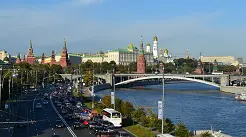The Dutch referendum, held last April, became a battering ram aimed at the European Union. With turnout low, Dutch voters rejected the trade agreement between the European Union and Ukraine, delighting Moscow, emboldening pro-Russia populists around Europe and leaving political elites aghast.
With elections slated for France, Germany and possibly Italy this year, officials across Europe are warning that the Russians are actively interfering, echoing the Central Intelligence Agency’s assertions that Moscow meddled in the United States presidential election.
The Netherlands is holding its own national elections on March 15, and domestic intelligence officials say that foreign countries, notably Russia, have tried hundreds of times in recent months to penetrate the computers of government agencies and businesses. Those in power are very worried — there is more than ample reason for alarm over interference in elections,” said Sijbren de Jong of the Hague Center for Strategic Studies. “But the real risk are populists who run, knowingly or unwittingly, with Russia’s agenda because they know it is damaging to the status quo in Europe that they want to destroy. All Russia really needs to do is sit back and let populists do their bidding.”
The full article can be read here.
Dutch daily newspaper De Volkskrant also referenced the article on their opinion blog.
The article was also featured in ‘the Daily Vertical‘; Radio Free Europe’s daily Russia brief and by Polish newspaper Gazeta Prawna.
Photo credit: Minister-president via Foter.com / CC BY






